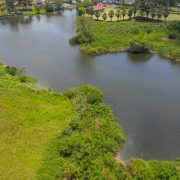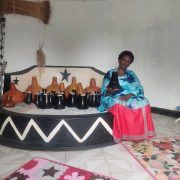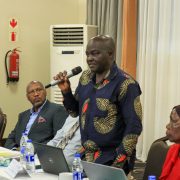CCFU E-Conference Highlights Role of Intangible Cultural Heritage in Advancing Sustainable Development
- 9 months Ago
- 0 Comment
- 3 Min Read

June 13, 2025 – Kampala, Uganda
A landmark e-conference hosted by the Cross-Cultural Foundation of Uganda (CCFU) has brought a renewed attention to the vital role of intangible cultural heritage (ICH) in promoting sustainable development.
Held virtually, the conference drew participation from 61 participants, including university professors, students, and cultural practitioners, all focused on strengthening heritage education and safeguarding Uganda’s rich cultural legacy.
Focusing on Intangible Heritage in Education and Development
The event opened with remarks from moderator Prof. Elizabeth Kyazike, who outlined the conference objectives: to discuss experiences, challenges, and strategies related to intangible cultural heritage education and its integration into sustainable development frameworks.
Dr. Deo K. Kannamwangi of Kyambogo University shared the journey of establishing a pioneering heritage studies program supported by UNESCO and CCFU. The program, which recently graduated its first cohort, has seen positive outcomes, including employment for all graduates.
However, Dr. Kannamwangi acknowledged persistent challenges, such as low enrollment, public misconceptions, and limited resources. He emphasized the need for graduate programmes, sustained community outreaches, and incorporating tourism into course content to boost relevance and attractiveness.
Voices from the Field: Students and Lecturers Share Experiences
Fahad Ssemakula, a Kyambogo University heritage studies graduate, highlighted the personal and academic impact of heritage studies. Fahad recounted overcoming stereotypes and discovering the relevance of culture in modern life through practical fieldwork.
Akampa Stuart, representing Kabale University, called for deeper collaboration with CCFU and the introduction of heritage studies as a compulsory subject for education students.
From Makerere University, Dr. Charlotte Mafumbo raised critical concerns around preserving confidential forms of ICH, such as spiritual and medicinal knowledge, emphasizing the need to balance documentation with respect for cultural privacy.
The Community at the Heart of Cultural Safeguarding
Barbra Babweteera, the Executive Director of CCFU, underlined that communities are the custodians of ICH and must be central to any safeguarding strategy. She advocated for awareness-raising through storytelling, clan meetings, school programs, and digital platforms.
Additionally, she urged the integration of community engagement into academic curricula and highlighted the importance of traditional knowledge in strengthening social cohesion, health, and intergenerational learning.
UNESCO’s Role and Culture in Sustainable Development
Daniel Kaweesi of the Uganda National Commission for UNESCO delivered a comprehensive presentation linking Uganda’s cultural heritage with global sustainability goals.
Citing the 2003, 2005, and 1972 UNESCO conventions, Kaweesi emphasized that culture is both a driver and enabler of sustainable development, contributing to economic growth, social inclusion, urban resilience, and environmental sustainability.
He stressed that culture-based education, such as heritage studies, enhances creativity, critical thinking, and innovation. He also noted Uganda’s increasing government support for arts and creative industries as a positive step toward economic and cultural sustainability.
As Uganda continues to grapple with globalization and modernization, this conference reaffirmed the importance of rooting development in local culture and knowledge systems. With continued support from UNESCO, CCFU, and academic institutions, Uganda is positioning itself as a leader in using intangible cultural heritage to shape an inclusive, resilient, and sustainable future.







